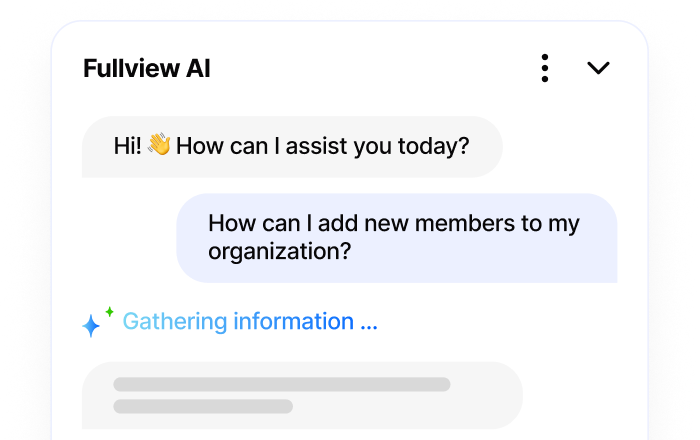If you’re considering outsourcing your customer support to a third-party, you’re probably wondering what unintended consequences that decision may have down the line. Delegating such an enormously vital business function to someone outside your company is never something you should take lightly.
Today, we thought we’d take you through 8 reasons you may want to outsource customer support — and 5 that should give you pause.
What is outsourced customer support?
Just so we’re on the same page before we dive in, a brief note about what we mean when we talk about outsourcing customer support.
Outsourcing customer support is when a company contracts out their customer support functions to a third party — often firms that specialize in this. The third-party’s support agents then handle all inbound and outbound support calls and messages. Sometimes firms like this also help set up automation on your behalf.
PartnerHero is an example. Companies like it match customer support professionals to businesses in a very bespoke way to create customer support experiences that feel in-house.
They also work with your company to identify the metrics that matter to you and make sure that the support team they build for you meets those expectations. And they also help you set up your customer support tech stack so you’re future-proof if you ever want to move your support team back in-house.
Why do companies choose to outsource customer support?
There are typically a few considerations when a company decides to outsource customer support. Either:
- They don’t have the budget to hire an in-house support team or
- They’re at a stage in their lifecycle that means that they don’t have to hire an in-house support team or
- They’re facing a downturn or entering a recession and looking to make layoffs.
Hiring an in-house support team can be expensive to set up and maintain, depending on your geography and lifecycle. So companies are often tempted to outsource functions like this to English-speaking markets like India to cut costs.
The pros of outsourcing customer support
We’ll say it again, just to drive the point home a little: CX is vital to the success of any company — and customer support, in turn, is a vital part of CX. So choosing to outsource something that can make or break your business is never something that you should do lightly.
However, we aren’t naysayers. There are definitely benefits to outsourcing customer support — even apart from all the money it typically saves companies.
So here are 8 reasons to do just that.
It’s cost effective
This is the most obvious benefit: if your company is in a high cost of living area where salaries tend to match, it makes sense that outsourcing customer support to other, cheaper markets will save you a lot of money.
Consider this: the average salary for a customer support representative in the US is $44,000 per year. The average salary for a customer support representative in India, on the other hand, is far lower than that — even accounting for the cut that the third-party outsourcing company will take off the top.
It’s specialized
Reputable outsourcing companies, like the aforementioned PartnerHero, are experts when it comes to CX and customer support. They know exactly how your setup should be designed, implemented and maintained. This type of specialized knowledge is something your company may lack access to — especially if you’re just starting out and don’t have people with a background in CX, customer support or customer success on your team.
It can lead to better CSAT outcomes
This is a double-edged sword, because choosing the wrong outsourcing partner may worsen your CSAT scores, but as long as you choose someone with a good reputation, you may actually see your CSAT scores improve.
Another thing to consider with respect to this is the fact that where you choose to outsource customer support can be hugely predictive of CSAT outcomes because of something known as ‘Country of Origin’ theory.
This theory builds on the idea that most people have preconceived notions or biases towards certain countries that may negatively impact how they view your company’s reputation if you choose to outsource to those countries.
Typically, most customers favor interacting with support agents in their own country or countries they view as similar. A survey of US customers from 2010 found that they rated Canada significantly higher than India, Mexico, China and the Philippines on customer service attributes such as communication, reliability and security.
It’s flexible
Another huge plus is the fact that, unlike hiring in-house customer support reps, outsourcing customer support is much more flexible. You can work with your outsourcing partner to scale your support team up or down as the volume of your inquiries changes — using more reps when it goes up during product launches, for example, and then switching it up with fewer reps during lulls — like seasonal changes.
The cons of outsourcing customer support
There are a few major cons when it comes to outsourcing customer support and there is good data to back them up.
What you ultimately decide to do will really depend on unique considerations that only you and your team can evaluate.
With that said, here are some general — but significant — concerns.
You’re no longer in control
By outsourcing customer support, you’re bound to lose some control and some oversight into how customer inquiries are being handled. For something as critical as business CX, losing that control can be daunting. And can really backfire.
92% of customers will completely abandon a company after 2 or 3 negative experiences. And 13% of those will share their experiences with 15 or more people. That’s why, when it comes to customer support, you may want to keep all the control you can.
Another way this loss of control may manifest negatively is legally: these days, especially with the advent of GDPR and stricter data privacy laws, your business may run into legal trouble if they company you’re working with to outsource your customer support is lax about compliance.
However, if you’d still like to outsource it, just make sure you’re working with the right partner and are still in the loop about the salient — and not so salient — aspects of the process.
You may face (corporate) cultural barriers
We’ll come to actual cultural differences in a second, but an important point to consider is that your outsourced customer support team isn’t going to be exposed to or trained in your corporate culture, which can be especially problematic if you’re trying to create cohesive brand experiences at every point of your user journey,
One way around this is to create training manuals and style guides in-house, but even then, it may not be enough to create those cohesive experiences you should absolutely be working towards.
Your customer satisfaction scores may suffer
While CSAT scores may increase if you find the right outsourcing partner and they do a good job building you a customer support team, unfortunately, studies have found a negative correlation between outsourcing and customer satisfaction — regardless of whether you outsource locally or internationally. What this suggests is that the outsourcing — rather than anything that can be attributed to ‘Country of Origin’ causes — may be to blame.
One 2019 study found that the coefficient for front office customer support offshore outsourcing was negative (α = ‒1.252, p<0.01), which indicates that customers are less satisfied with a company’s products or services when they receive offshore outsourced customer support. They may even start to associate those products and services with poorer quality.
Interestingly, this same study also found that this negative coefficient held (if to a slightly lesser extent) even if this outsourcing was done onshore, i.e., in the same country that the company’s customer base resided in.
So, it seems that, to some extent, there may be no winning here. But why?
The most likely reason is that an outsourced customer support team, as opposed to an in-house one, may not have the required depth of knowledge about your product or service to provide great support.
What’s the ultimate takeaway here? You can’t avoid investing in your customer support team — whether they’re in-house or outsourced. Training and constant evaluation are key.
If outsourced customer support is a net negative, why do companies still do it?
Although outsourced customer support is a net negative no matter how or where you outsource it, why do companies still choose to do it?
And should you?
These are a few reasons, but the most likely ones are:
- Customer segment: The research cited in this article also found that an older, less educated and lower income customer segment were most likely to have negative attitudes about outsourced customer support. So, if that doesn’t comprise the majority of your target market, you could choose to outsource your customer support.
- Changing attitudes: Norms and attitudes also change over time. 50 years ago, outsourced manufacturing also faced the same negative connotations as outsourced services do today. This is largely not the case anymore, so it’s reasonable to expect that the tide will turn for outsourced customer support as well.
- Automation: With the use of more and more automation in customer support, where you outsource your support operations may not matter anymore because geography (and the cultural differences associated with it, like accents, for example) will mean less and less as we move away from voice-based support and closer to text-based and algorithmic support — though, fair warning, that has its own can of worms.
Outsourcing customer support: best practices
If, after carefully considering what the pros and cons look like for your company, you still choose to outsource customer support, here are some best practices to keep in mind:
- Carefully vet the company you choose for outsourcing: Look up reviews, ask for case studies, question them about compliance standards, do your due diligence to vet your outsourcing partner with care.
- Figure out your benchmarks: Take a second to figure out internally what success looks like: is it a sharp increase in the number of tickets resolved, is it better CSAT scores, is it lower time-to-resolutions, or is it some combination of a bunch of different KPIs? If you can, put actual performance numbers to these benchmarks so they're easier to measure and track.
- Lay out clear goals: Once you've chosen the company you want to delegate the outsourcing to and figured out what success looks like, you'll need to work closely with them to ensure that your goals and expectations are clear from the get go.
- Develop good training materials: You'll want to make sure you're actively participating in the setup of your new outsourced customer support function. Develop good training materials — a script, a style guide, training videos — to make sure your new agents are up to speed and know enough about your product and customers to deliver good customer support experiences.
- Measure and iterate: You'll need to measure performance on a continual basis to discover inefficients or ineptitude and work to fix it ASAP. Once you've lost consumer trust, it is very difficult to win it back.
Wrapping things up
So there you have it: all the important pros and cons you should consider when you think about outsourcing customer support.
Like we’ve already said, though there are some real cons, the ultimate decision should be made after careful consideration and that’s something each company will have to do for themselves.
We also can’t stress enough how important it is to find the right outsourcing partner — one who can work with you to address your concerns and make sure you stay in control of this vital business function.


.png)





.webp)
